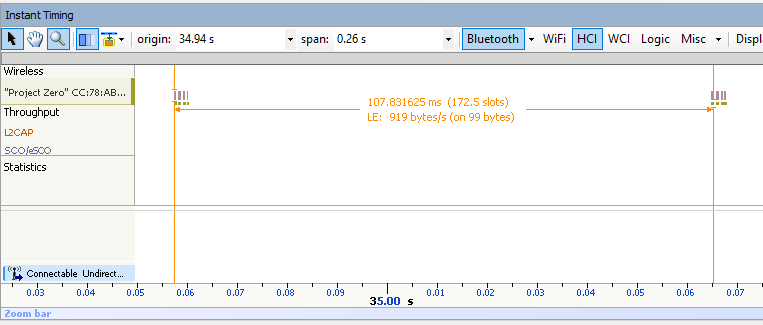Tool/software: Code Composer Studio
Hello,
I am working on project_zero example, I have updated my DEFAULT_ADVERTISING_INTERVAL to 16000 (i.e. 10 seconds). and advertising mode is General.
Basically I want some delay in advertising that is the device should advertise for 10sec then stop advertising then again advertise for 10sec.
The result which I observe is, the device is advertising continuously. So I am not getting the significance of that DEFAULT_ADVERTISING_INTERVAL , it is doing nothing.
So is there any way by which I can achieve that feature. (Limited mode is not suitable for my application as it stops advertising after 30sec)
I want periodic advertising with delay of 10sec or 20sec. How can I achieve this ?










